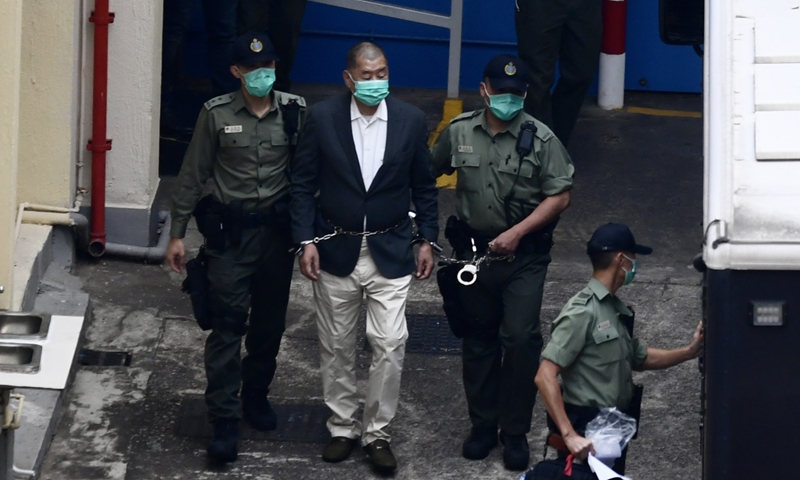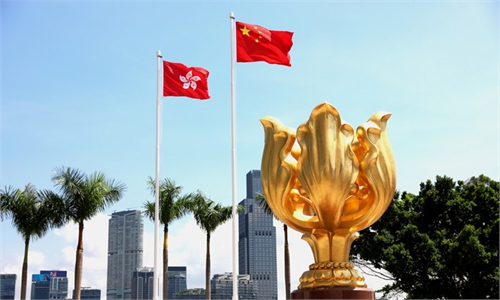HK court rejects Jimmy Lai's legal challenges about hiring foreign lawyer to defend his national security trial

Jimmy Lai Photo: VCG
Hong Kong's High Court dismissed on Friday the judicial review filed by anti-government media tycoon Jimmy Lai concerning hiring an oversea lawyer to defend him in the national security trial. Some legal experts believe that Lai's bid to challenge the decision of the city's committee for safeguarding national security is nothing more than trying to gain public attention and serving as "deathbed struggle," as local courts do not have jurisdiction over the city's national security committee's work.
The court rejected the request of Lai to overturn a decision by the Committee for Safeguarding National Security of the HKSAR of advising the local immigration office to reject any future visa applications for his British lawyer, who has been seeking to represent the media tycoon who is also a major anti-government figure dubbed as a "modern-day traitor."
China's top legislature gave interpretation of provisions in Hong Kong National Security Law (NSL) in December 2022, settling disputes over foreign lawyers working on national security cases.
According to the interpretation, questions of whether foreign lawyers without local full qualifications in the HKSAR can serve as defense counsel or legal representative in cases concerning offence endangering national security belong to questions stipulated in Article 47 of the NSL, and shall obtain a certificate from the Chief Executive (CE).
If the courts of the HKSAR fail to request and obtain a certificate from the CE to certify the questions, the Committee for Safeguarding National Security of the HKSAR shall, in accordance with Article 14 of the law, perform its statutory duties to make related judgments and decisions on the circumstances and questions, according to the interpretation.
Lai made the request that the interpretation won't affect hiring his overseas counsel Timothy Owen and argued that the committee had "overstepped its power" by advising the immigration chief to reject future visa applications for Owen, which have been rejected by the court.
Friday's verdict not only effectively denied Owen's involvement in the high-profile case, but also dealt a blow to the tycoon's prospect of securing a permanent stay of proceedings before the trial begins in September, the South China Morning Post said.
The court argued that power of supervising the work of the committee "is exclusively owned by the central government," and the Hong Kong courts are local courts, which have no right to intervene in it through juridical review, in addition, there's no such thing as the committee "overstepped its power," so the court rejected Lai's attempts, according to local media reports.
According to Article 14 of the NSL, the local courts have no jurisdiction over the work of the committee, and the decisions of the committee are not subject to judicial review, Louis Chen, a member of the Election Committee and general secretary of the Hong Kong Legal Exchange Foundation, told the Global Times on Friday.
"Therefore, the court must reject relevant applications," he said, noting that the jurisdiction of the SAR courts is in fact derived from the Basic Law, with Articles 12 and 14 of the NSL being interpreted together as a coherent whole.
The committee accepts the direct supervision and control of the central government, which is free from any interference of any institution including the courts, which is stipulated in relevant provisions, Chen said. "Lai's applications for judicial review are nothing more than trying to gain public attention and serving as a 'deathbed struggle,' which is completely wrong," he said.

